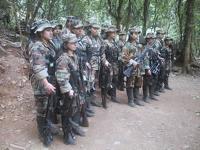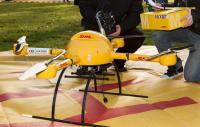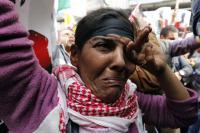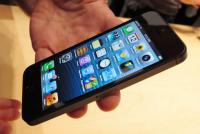-
Turkish military seizes power in Turkey
The Turkish military announced a few hours ago (Friday afternoon, EST) that it has seized power, and that the government of President Tayyip Erdogan, in power since 2003, has been deposed. Prime Minister Binali Yildirim, however, said in a hastily arranged press conference that while it was not clear who was in chare in Turkey, he was confident the attempted coup would be put down. There is no information about Erdogan and his whereabouts, but the Turkish sister channel of CNN said he was “safe” in an unknown location. The military has declared martial law in the country, imposed a 10:00 p.m. (Turkey time) curfew, and placed soldiers in the offices of all TV stations and major newspapers.
-
-
At least 84 killed, more than 200 injured, by a terrorist driving a truck into 14 July crowd
At least eighty-four people were killed Thursday when a 31-year old Tunisian plowed into a crowd celebrating Bastille Day in Nice, France. He accelerated, and continued to drive for about 1.5 miles, running over people who crowded the boulevard. More than 200 were injured, some of them are in critical condition. Police shot and killed the driver, Lahouaiej Bouhlel, who had a residency permit to live and work in France.
-
-
The perpetrator: Unstable loner with a history of petty crimes, interest in “girls and salsa”
The driver of the truck was identified as Lahouaiej Bouhlel, a 31-year-old Tunisian, who had a residency permit to live and work in France. He was a divorced father of three, and neighbors said he had become depressed after the breakdown of his marriage. The neighbors said that Bouhlele was not particularly interested in religion, adding that he preferred girls and salsa.
-
-
France has a long history of violence and terrorism
France has a long history of violence carried out by different groups with different ideologies and goals. Until the rise of Islamist terrorism in the last twenty years, most of the violent and terrorist acts in the post-World War Two era belonged to three categories: Separatist movements; terrorism related to the Algerian War; and terrorism by various groups in the Middle East and North Africa.
-
-
Austrian court sentences an Islamist hate preacher to 20 years in prison
A criminal court in Graz, Austria, on Wednesday sentenced an Islamist hate preacher, who has adopted the name Ebu Tejma, to twenty years in prison — the harshest sentence so far for convicted Islamists in Austria. He was sentenced on one count of membership in a terrorist organization and one of promoting terrorist activities.
-
-
A faction of Colombian FARC rebel group rejects peace deal, refuses to disarm

The Armando Rios First Front, a unit of Colombia’s FARC rebel group, has said it will not disarm or demobilize, as it is required to do under the peace deal reached between the FARC and the government of Colombia. The deal, which ends the 52-year guerrilla war between the FARC and successive Colombian governments, was signed in Havana, Cuba, three weeks ago. The announcement by the First Front is the first public sign of opposition to the from within the rebel ranks. Colombian government sources said that other FARC factions could also reject the peace agreement, and that if enough of them did so, it would throw the peace process into doubt.
-
-
10 years after Second Lebanon War, Israel concerned next round will be far worse
On the ten-year anniversary of the beginning of the Second Lebanon War, Israeli officials continued to warn that any future conflict with Hezbollah will result in unprecedented damage to the group. A senior IDF official said that the difference between the next war and 2006 “will be the difference between an operation and a war. 2006 was an operation, and we didn’t use all of our power. Next time it won’t just be planes flying around. … We will use all of our power to destroy Hezbollah militarily.”
-
-
ISIS prepares followers for end of caliphate
In the face of an ever-more-effective campaign by the U.S.-led coalition — a campaign which has substantialy reduced the size of the ISIS-controlled areas in Iraq and Syria; decimated ISIS’s oil-production and distribution infrastructure; killed many senior commanders and operatives; and, with the help of Turkey, choked off the flow of foreign fighters to replenish the organization’s dwindling ranks – ISIS leaders have begun to prepare followers of the Islamist organization for the fall of the ISIS-established caliphate.
-
-
ISIS boasts killing 5,200 people during the month of Ramadan
ISIS has boasted that its Islamist fighters have killed 5,200 people in “military operations” during the holy month of Ramadan. An infographic in the group’s Arabic-language weekly magazine al-Naba, ISIS lists fourteen terrorist attacks group followers carried out in Europe, the United States, Asia, Africa, Syria, and Iraq. ISIS claims the victims include nearly 2,000 Shiites, 1,000 Kurds, 600 Syrian Alawites, and 300 Christians.
-
-
U.S. terror victims file suit against Facebook for failing to block Palestinian incitement
The families of five Americans recently killed or injured by Palestinian terrorists have filed a lawsuit against Facebook for allowing the terrorist group Hamas to incite violence on its network. The plaintiffs are seeking $1 billion in punitive damages under the Anti-Terrorism Act, which allows American citizens who are victims of overseas terrorist attacks to sue in U.S. federal courts.
-
-
ISIS's finances have been damaged, but U.K. can do more
In their report on ISIS’s finances, MPs on the Foreign Affairs Subcommittee say ISIS faces an increasingly desperate struggle to raise money. The so-called “richest terrorist group” may have generated more money than any other terrorist organizations but it also incurs unprecedented costs.
-
-
Banning Muslim face veil at the work place not discriminatory: Austria’s Supreme Court
Rejecting employees’ requests to wear a veil at work is not discriminating against them, Austria’s highest courts has ruled. In the landmark decision, Austria’s Supreme Court (OGH) ruled that if items of clothing prevent communication, an employer may legally ban them at the work place. The question of whether or not Muslim women should be allowed to wear the Islamic veil at the work place or public schools – or even at public — is the subject of intense debate in Europe, and many states have legislated against it.
-
-
ISIS using drones with explosives, spy cameras: Pentagon

The Pentagon says that ISIS fighters are have been posing a growing threat to U.S. and Iraqi forces by using small commercial drones to carry improvised explosives devices (IEDs) or surveillance cameras. These drones are especially threatening because they can evade detection. The growing threat led the Joint Improvised-Threat Defeat Agency, the Pentagon’s office charged with keeping tab on and countering IEDs, to ask Congress for permission to reallocate $20 million to provide money for a counter-drone program.
-
-
ISIS caliphate shrinks a further 12 percent in 2016

Territory controlled by ISIS shrunk by 12 percent in the first six months of 2016. In 2015 the ISIS caliphate shrunk by 12,800 km2 to 78,000 km2, a net loss of 14 percent. In the first six months of 2016, that territory shrunk again by 12 percent. As of 4 July 2016, ISIS controls roughly 68,300 km2 in Iraq and Syria, which is roughly the size of Ireland or West Virginia.
-
-
ISIS uses Whatsapp, Telegram to sell girls and women as sex slaves

ISIS has been using instant messenger apps Whatsapp and Telegram to advertise Yazidi women and girls as young as 12 for sale as sex slaves. These apps are also being used to share photos databases of women held by ISIS as sex slaves. ISIS uses the apps to distribute these of photographs to ISIS militants manning the group’s checkpoints so that these women can be identified if they try to escape ISIS-controlled territory. Telegram and Facebook-owned Whatsapp both use end-to-end encryption, preventing the two companies from accessing users’ communications.
-
More headlines
The long view
Patriots’ Day: How Far-Right Groups Hijack History and Patriotic Symbols to Advance Their Cause, According to an Expert on Extremism
Extremist groups have attempted to change the meaning of freedom and liberty embedded in Patriots’ Day — a commemoration of the battles of Lexington and Concord – to serve their far-right rhetoric, recruitment, and radicalization. Understanding how patriotic symbols can be exploited offers important insights into how historical narratives may be manipulated, potentially leading to harmful consequences in American society.
Luigi Mangione and the Making of a ‘Terrorist’
Discretion is crucial to the American tradition of criminal law, Jacob Ware and Ania Zolyniak write, noting that “lawmakers enact broader statutes to empower prosecutors to pursue justice while entrusting that they will stay within the confines of their authority and screen out the inevitable “absurd” cases that may arise.” Discretion is also vital to maintaining the legitimacy of the legal system. In the prosecution’s case against Luigi Mangione, they charge, “That discretion was abused.”
“Tulsi Gabbard as US Intelligence Chief Would Undermine Efforts Against the Spread of Chemical and Biological Weapons”: Expert
The Senate, along party lines, last week confirmed Tulsi Gabbard as Director of National intelligence. One expert on biological and chemical weapons says that Gabbard’s “longstanding history of parroting Russian propaganda talking points, unfounded claims about Syria’s use of chemical weapons, and conspiracy theories all in efforts to undermine the quality of the community she now leads” make her confirmation a “national security malpractice.”
